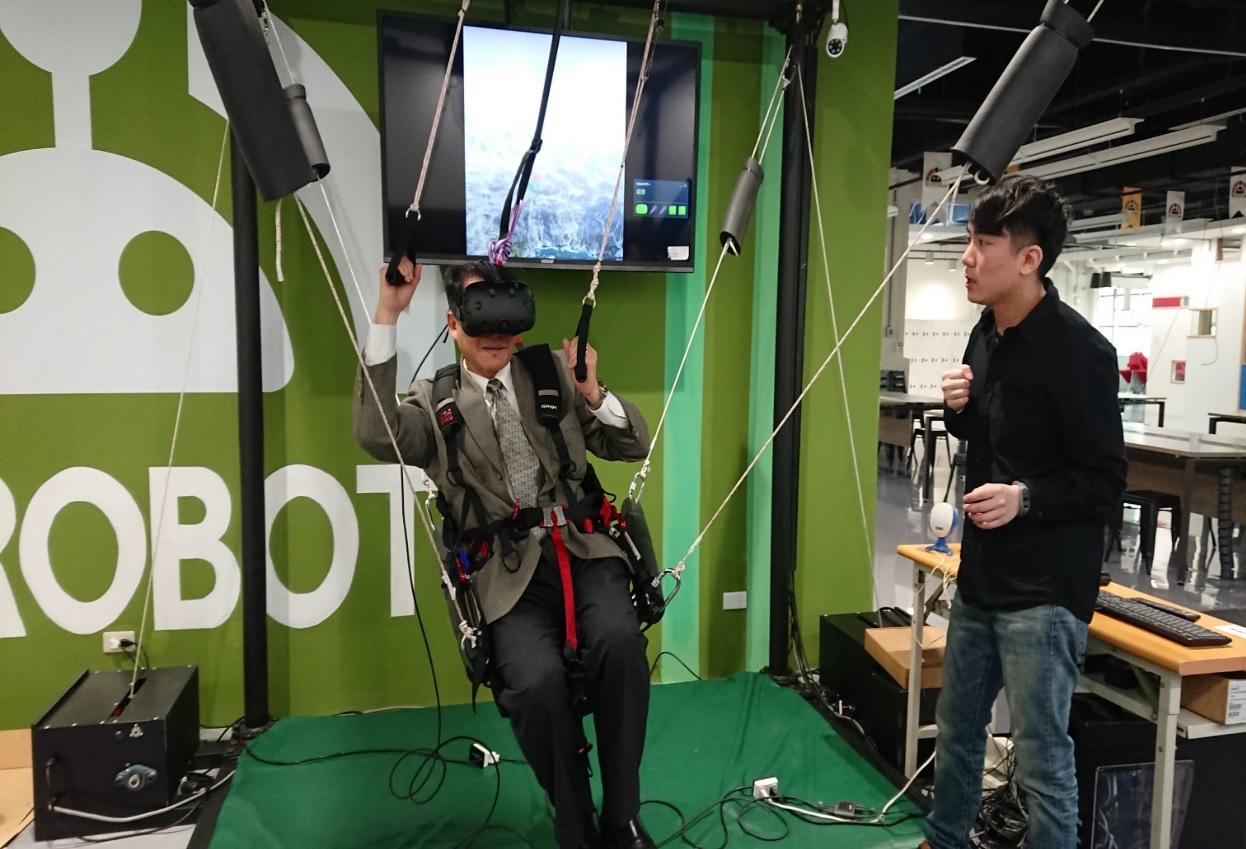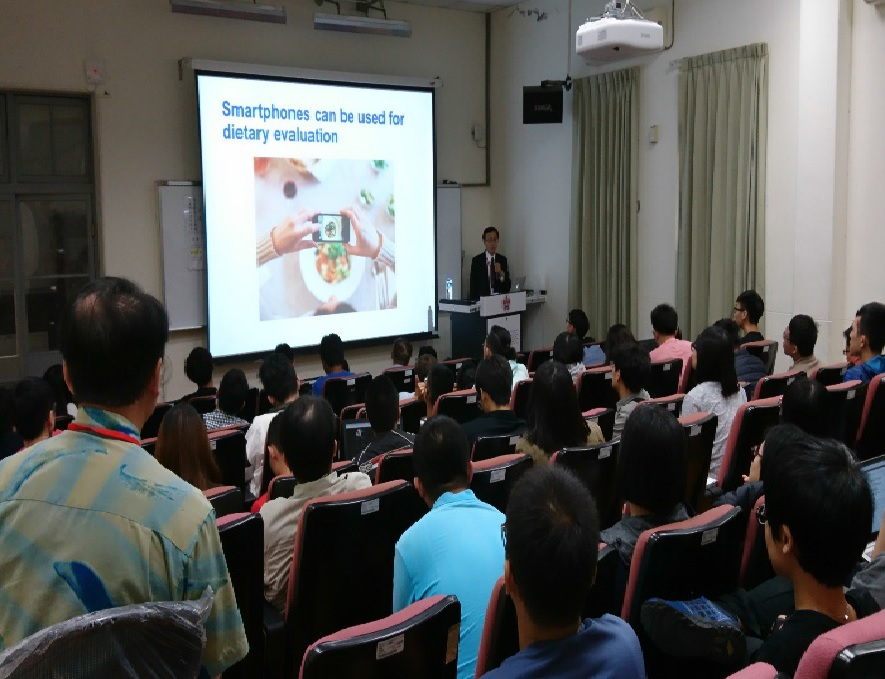International AI Keynote Speeches, Experts Share Applications for the Medical Industry

Artificial Intelligence is currently one of the hottest topics and the range of areas to which it can be applied are quite vast. In order for scholars and people from related industries to gain new knowledge regarding AI, the Ministry of Science and Technology AI Biomedical Research Center (AIBMRC) together with AI_ROBOT@STSP Makerspace and Cheng Kung University’s Global Research and Industry Alliance held
“International AI Keynote Speeches”. These lectures were held on December 7th at Cheng Kung University’s Department of Computer Science and Information Engineering Amphitheater. Three international scholars on Smart Healthcare were invited: Dr. Ben Lo from America’s Georgetown University Lombardi Comprehensive Cancer Center, Dr. Rich Tsui from America’s University of Pittsburgh’s Department of Biomedical Informatics, and Dr. Mingui Sun, the Director of University of Pittsburgh’s Center for Computational Neuroscience. They brought up observations from different perspectives, sharing AI’s current condition and achievements of practical application and research in the medical industry. This event attracted close to one hundred esteemed participants.
Dr. Ben Lo introduced artificial intelligence deep learning, in which the most commonly used is a "Convolutional Neural Network" Algorithm. This simulates a human's visual organs to create a model for deep learning, implementing a well-designed weighted analysis and automatically established rules. This technology can be used in image processing, data prediction, and drug prescriptions, etc. Dr. Lo’s technology is already used in AI lung computed tomography screening image processing. This software, ClearRead CT, uses computer learning modeling technology, which can quickly and effectively compare an image's unique characteristics and implement physical differentiation, remove structures that are not nodules in a Lung CT scan, as well as help radiologists interpret and identify nodules after cross-comparison, thereby assisting in clinical decision making.
Dr. Rich Tsui introduced a clinical prediction analysis system which uses large-scale electronic health records as well as collection and analysis of social data. This can reduce the sickness rate, mortality rate, and cost of medical insurance. Dr. Tsui's team collected and analyzed societal data such as population statistics, experiment results, drug, and descriptive clinical reports, as well as birth and death records. Using integrated learning a prediction model was formed, applicable to identifying risk of death, rate of serious pediatric sickness, rate of re-hospitalization in 30 days, etc. The team also developed a deep neural network natural language processing pattern to be used for identifying societal backgrounds from descriptive clinical reports. Social background has already been proven to be a key factor in influencing medical insurance outcomes. By using risk prediction management, re-hospitalization rates can be reduced in half.
Experts also suggest that important future developments should not only focus on deep AI core technology but also consider software services and big data collection, using cross-unit and cross-national cooperation to establish a multi-disciplinary integrated platform. National Cheng Kung University's Global Research and Industry Alliance can provide educational training and high-level talent cultivation, assisting industry and related research organizations to establish partnership cooperative relationships, facilitating cooperation with industry, widening the range of AI's application in the medical industry, thereby increasing AI technology's economic value.





